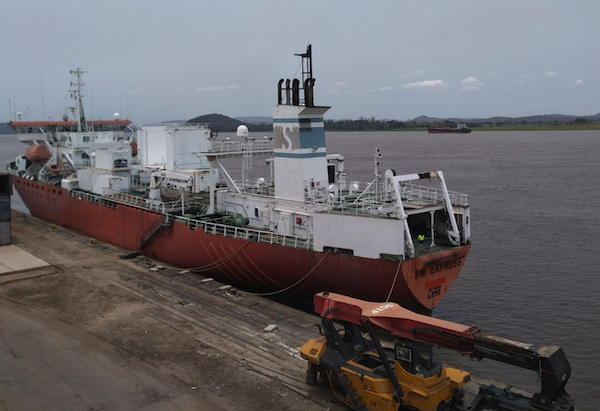- The Minister of Fisheries and Livestock, Jean-Pierre Tshimanga Buana, has announced the imminent arrival of eight new fishing ships constructed by Pyrlant Shipyard.
- Although the National Fisheries and Aquaculture Office (ONPA) is slated to manage these ships, it still lacks an operating budget and physical headquarters.
Fisheries and Livestock Minister Jean-Pierre Tshimanga Buana, announced during the 27th June 2025 council of ministers that eight new fishing boats are soon to arrive. These include three trawlers for marine fishing on the Atlantic coast, and five vessels adapted for river waters.
The vessels, which left the Damietta shipyard in Egypt on June 5, 2025, were built by Pyrlant Shipyard, the technical partner of Yetu Industries. Yetu had signed a contract in 2023 with the Congolese government to manufacture and deliver 15 industrial fishing boats. The arrival date of the vessels in the Democratic Republic of Congo (DRC) has not yet been communicated. According to the minutes of the council of ministers, they will dock at Boma port, in the Kongo Central Province, where they will remain until they are commissioned.
The minutes of the council of ministers dated 27th December 2024 stated that these boats would be managed by the National Fisheries and Aquaculture Office (ONPA). "To strengthen the efficiency the Government urgently needs, ensure coherence and thus avoid action overlap, the President of the Republic has invited the Minister of Fisheries and Livestock to consider taking concrete measures to support the ONPA in managing the fishing vessels ordered by the Government and whose delivery is imminent," the document reads.
However, despite being established on June 6, 2022, to increase national fisheries and aquaculture production, the ONPA still does not have an operating budget or office space. On June 24, during the national fish day, its chairwoman of the board, Henriette Wamu, once again expressed regret over this circumstance.
Despite an estimated fisheries potential of over 700,000 tons per year, the DRC exploits its resources sparingly. The lack of infrastructure, an appropriate fleet, and the prevalence of unsustainable, often unregulated fishing practices are to blame, according to the FAO. As a result, the country remains heavily dependent on fish imports, estimated at around 200,000 tons per year.
This article was initially published in French by Ronsard Luabeya (intern)
Edited in English by Ola Schad Akinocho










